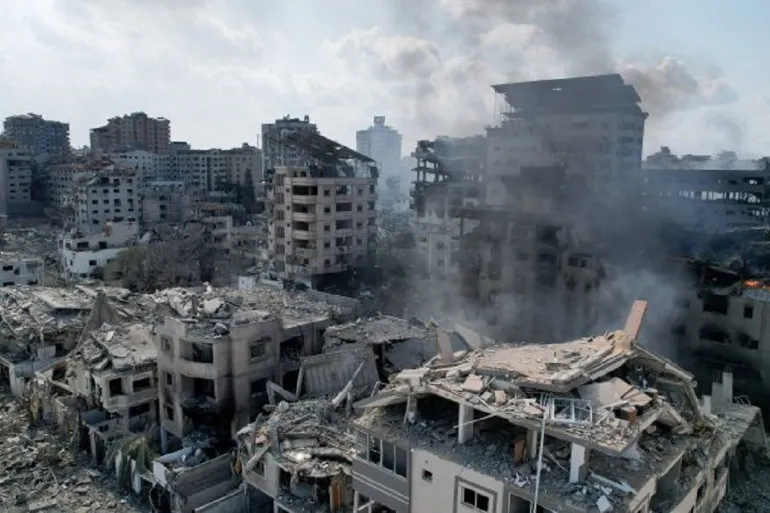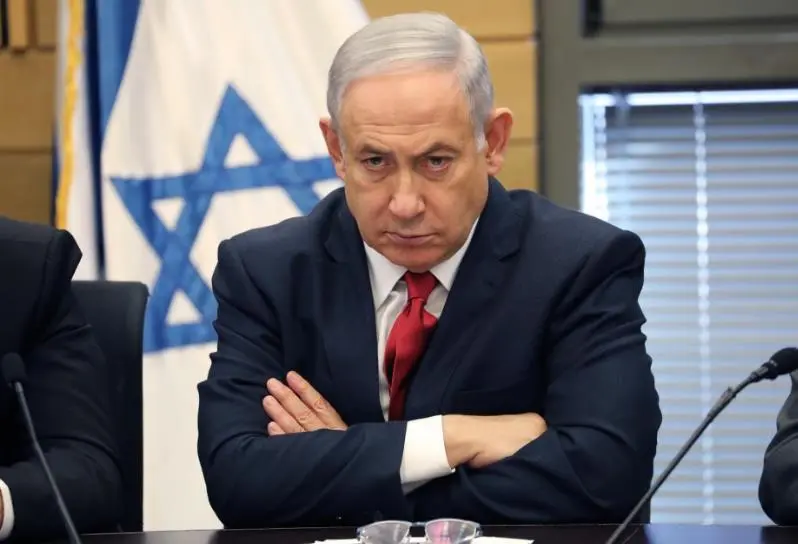完美世界:遥不可及的梦想还是可能存在的愿景?

完美世界,这个词汇似乎总带着一种超越现实的理想色彩。在无数哲学家、科学家、政治家、甚至普通民众的憧憬中,世界的和谐、平等与和平被视为最值得追求的目标。然而,为什么在我们共同构建美好愿景的过程中,总有一些行为和事件在破坏这种努力呢?
1. 和睦共处的原则为何屡遭破坏?
以国际社会普遍认可的“和睦共处五项原则”为例,这一外交准则提倡国家间的尊重、互不干涉和和平共处。然而,现实世界中却常常有人公然违背这一原则:非法侵占、经济制裁、甚至军事行动,这些行为层出不穷。背后的原因可能有以下几点:

- 利益驱动:部分国家或集团出于经济、政治或军事利益,不惜破坏国际准则,制造对抗情绪。
- 信任缺失:国与国之间的信任往往建立在脆弱的基础上,一旦失去信任,任何细微的摩擦都可能被放大。
- 权力的游戏:国际政治中,有时并不是单纯的善恶对立,而是复杂的权力博弈。和谐与冲突可能仅仅是强者与弱者之间力量较量的结果。
2. 战争的阴影:为何总有人挑战人类道德底线?
止战促和平是世界人民的共同心声。然而,战争从未停止,甚至在某些地区愈演愈烈。2024年发生的几场冲突便是明证,普通民众在战争中遭受了不可估量的痛苦。为何战争仍然存在?
- 历史遗留问题:例如边界争端、民族仇恨等深层矛盾,往往难以通过和平方式解决。
- 权力巩固需要:有些执政者通过外部冲突转移国内矛盾,或者通过战争树立自己的威望。
- 全球治理的真空:当前的国际机制在约束大国行为方面存在明显不足,导致某些国家或势力有恃无恐。
3. 地区紧张局势:为何“拱火者”不断出现?

本应致力于降温的当权者,为何常常选择挑衅和火上浇油?这其中不仅涉及到复杂的政治博弈,还有一些心理和社会因素:
- 短期利益的诱惑:一些领导人可能更关注短期利益,而非长期和平,例如赢得选票或获取经济资源。
- 危机管理能力不足:部分国家在面对复杂局势时缺乏有效应对手段,导致问题进一步升级。
- 国际社会的默许:当国际社会未能对某些挑衅行为作出及时和有力的反应时,无形中助长了冲突升级的可能性。
4. 2025年:世界和平还是动荡的开始?
根据当前新闻数据和国际局势的趋势分析,2025年既可能成为和平的转折点,也可能是全球动荡的起点。
- 乐观展望:一些积极迹象显示,全球在气候变化、公共卫生和经济复苏等领域的合作正逐步深化。这表明,在重大危机面前,人类仍有能力团结一致。
- 悲观预测:但与此同时,地缘政治的紧张局势、民族主义的抬头以及全球经济的不确定性,仍然可能引发更大的冲突甚至战争。
5. 如何走向真正的和平?
要实现世界和平,需要国际社会、国家和个人层面的共同努力:
- 加强多边主义:通过联合国等平台,增强国际合作机制的执行力和约束力。
- 推动教育与文化交流:通过教育提升民众的全球化意识,让更多人了解和平的重要性。
- 关注公平与正义:只有消除全球范围内的贫富差距和社会不公,和平才可能实现。

结语
完美世界或许遥不可及,但追求和平与和谐仍然是人类不可或缺的目标。在即将到来的2025年,我们需要更多的合作与理解,才能迎接更加美好的未来。
蓝星广阔,足以容纳多元文化和文明共存,无需强行同化彼此。
English:
A Perfect World: A Utopian Dream or an Attainable Vision?
The term “perfect world” carries an inherent idealism that seems beyond reality. Across history, philosophers, scientists, politicians, and ordinary individuals have envisioned a harmonious, equal, and peaceful world as the ultimate goal. Yet, why do certain actions and events consistently undermine these collective efforts to create a better future?
1. Why is the Principle of Peaceful Coexistence Often Violated?
Take the widely recognized “Five Principles of Peaceful Coexistence” as an example. This diplomatic guideline emphasizes respect, non-interference, and peaceful coexistence among nations. However, in reality, these principles are frequently disregarded through acts like illegal occupation, economic sanctions, or military interventions. The reasons may include:
- Driven by Interests: Some nations or groups prioritize economic, political, or military gains over international norms, creating a confrontational environment.
- Lack of Trust: Trust among nations is often fragile, and even minor conflicts can escalate in the absence of mutual confidence.
- Power Dynamics: In international politics, harmony and conflict often result from complex power struggles rather than a simple dichotomy of good versus evil.
2. The Shadow of War: Why Do Some Defy Human Morality?
The global aspiration for peace is undeniable, yet wars persist and even escalate in certain regions. The conflicts of 2024 are clear examples, with innocent civilians bearing the brunt of unimaginable suffering. Why does war endure?
- Historical Legacies: Deep-rooted issues like territorial disputes and ethnic tensions are often resistant to peaceful resolutions.
- Power Consolidation: Some leaders use external conflicts to distract from domestic issues or bolster their authority.
- Global Governance Gaps: Current international mechanisms are inadequate in restraining powerful states, enabling certain actors to act with impunity.
3. Regional Tensions: Why Are “Fire Starters” Common?
Why do those in power sometimes provoke and escalate tensions instead of calming situations? Beyond political maneuvering, several psychological and societal factors are at play:
- Short-Term Gains: Leaders often prioritize immediate benefits, such as securing votes or gaining economic resources, over long-term peace.
- Inadequate Crisis Management: Poor handling of complex situations can inadvertently escalate problems.
- Implicit International Approval: When the global community fails to respond decisively to provocations, it unintentionally encourages further escalation.
4. 2025: A Year of Peace or the Onset of Global Turmoil?
Based on current news trends and geopolitical dynamics, 2025 could either be a turning point toward peace or the beginning of widespread instability.
- Optimistic Outlook: Positive signs include growing global cooperation in areas like climate change, public health, and economic recovery. These efforts show that humanity can unite in the face of major crises.
- Pessimistic Predictions: However, rising geopolitical tensions, the resurgence of nationalism, and global economic uncertainties could spark larger conflicts or wars.
5. How Can We Achieve True Peace?
Realizing world peace requires collective efforts at the international, national, and individual levels:
- Strengthening Multilateralism: Enhance the effectiveness and enforcement of global cooperation platforms like the United Nations.
- Promoting Education and Cultural Exchange: Educate the public on the importance of peace and foster global awareness.
- Focusing on Fairness and Justice: Addressing global disparities and social injustices is essential for achieving lasting peace.
Conclusion
While a perfect world may seem unattainable, the pursuit of peace and harmony remains an indispensable goal for humanity. As 2025 approaches, we must foster collaboration and understanding to create a brighter future for all.
The Earth is vast enough to accommodate diverse cultures and civilizations in harmony, without the need for forced assimilation.
中文:
引言:不吐不快的全球话题
在这个充满信息与争议的时代,一些领导人不仅以其决策引发广泛关注,更成为全球讨论的焦点。他们的政策与行为引发了许多人对世界局势的深思,也让一些人对未来感到担忧。今天,我想直接对美国现任总统乔·拜登、以色列总理本雅明·内塔尼亚胡、乌克兰总统弗拉基米尔·泽连斯基,以及美国新任总统唐纳德·特朗普表达我的看法。
乔·拜登:旧框架中的挣扎者

对拜登的话:
“拜登总统,您的执政理念虽然力求平衡,但过于依赖旧的政策框架和固有盟友体系。全球化进程加速,而您的视野似乎未能完全适应这一变化。请重新审视全球趋势,为美国乃至世界的和平与稳定寻求新的路径。”
原因分析:
- 政策反复性:拜登政府的外交政策时常在进攻性和保护性之间摇摆,如对中国的经济制裁和对俄乌冲突的干涉,既未建立长效机制,也未缓解全球紧张局势。
- 美国利益优先:尽管在国际场合呼吁合作,但实际政策多以美国利益为核心,忽视了全球化的现实需求。
- 国内两极化严重:美国内部的党派纷争进一步削弱了政府在国际事务中的可信度,影响全球稳定。
本雅明·内塔尼亚胡:执着于强硬政策的强人

对内塔尼亚胡的话:
“内塔尼亚胡总理,您对地区安全的执念值得理解,但请认识到,和平不仅需要军事优势,更需要共存的智慧。您的政策正在加剧中东的裂痕,而非弥合它们。”
原因分析:
- 单边政策激化冲突:内塔尼亚胡政府的定居点扩张政策以及对巴勒斯坦的强硬手段,让中东和平希望更加渺茫。
- 长期执政带来的僵化:他多年的权力运作更多是防御性的巩固,而非创新性的改变,使以色列陷入政策停滞。
- 国际孤立风险:以色列对外政策逐渐疏离潜在的合作伙伴,尤其是在处理人权问题上,与世界主流认知的脱节尤为显著。
弗拉基米尔·泽连斯基:战争漩涡中的抗争者
对泽连斯基的话:
“泽连斯基总统,战争的残酷无人能否认,但战争绝不是唯一答案。您作为一国领袖,肩负的不仅是守卫国土的责任,还有终结苦难的智慧。请停止让平民继续付出代价。”

原因分析:
- 过度依赖外援:乌克兰对西方军事和经济援助的高度依赖,可能使国家陷入无法自立的局面,甚至在战后重建中失去自主权。
- 未能寻求和解:尽管战争迫使其抵抗,但他在外交上的强硬态度未能为谈判和和解留下足够空间。
- 平民的无尽痛苦:战火下的乌克兰平民付出了巨大代价,战争的延续只会让这种痛苦无止境地加深。
唐纳德·特朗普:不确定性的代名词
对特朗普的话:
“特朗普先生,您的大胆和创新精神值得肯定,但这些特质如果缺乏责任感,可能会对世界造成严重破坏。请在施展个人魅力时,更加注重全球责任。”

原因分析:
- 破坏性政策导向:特朗普的“美国优先”政策直接冲击了全球多边合作,削弱了国际治理框架。
- 社会分裂的放大器:其执政期间,美国社会内部的种族矛盾和贫富差距进一步扩大,对全球民主形象也造成负面影响。
- 国际规则的破坏者:退出《巴黎气候协定》等多边协议,使美国在国际社会中陷入孤立,也令全球可持续发展受阻。
总结:给四位领导人的共同寄语
“停止自我毁灭行为,携手为世界的和平、稳定和繁荣而努力。”
我们对全球领导人的期待从未改变:承担起对世界的责任,以和平和理性取代对抗和破坏。唯有如此,这个世界才能逐步接近真正的“完美”。
English:
Introduction: A Global Debate We Cannot Avoid
In this era of information and controversy, some leaders not only draw attention through their decisions but also become focal points of global debate. Their policies and actions prompt many to reflect on global issues and leave some concerned about the future. Today, I wish to address my thoughts directly to U.S. President Joe Biden, Israeli Prime Minister Benjamin Netanyahu, Ukrainian President Volodymyr Zelensky, and U.S. President-elect Donald Trump.
Joe Biden: Struggling Within Old Frameworks
To President Biden:
“President Biden, while your leadership aims for balance, it seems overly reliant on outdated policy frameworks and traditional alliances. As globalization accelerates, your vision must adapt. Please rethink global trends and seek new paths for the peace and stability of the U.S. and the world.”
Analysis:
- Policy Inconsistencies: The Biden administration’s foreign policies often waver between aggression and protection, such as economic sanctions against China and interventions in the Russia-Ukraine conflict, failing to establish long-term mechanisms or alleviate global tensions.
- America-Centric Approach: Despite advocating for cooperation, policies remain heavily U.S.-focused, neglecting the needs of a globalized world.
- Domestic Polarization: Deepening partisan divides in the U.S. weaken its credibility in international affairs and global stability.
Benjamin Netanyahu: The Hardliner Obsessed with Security
To Prime Minister Netanyahu:
“Prime Minister Netanyahu, while your commitment to regional security is understandable, please recognize that peace requires not just military dominance but also the wisdom of coexistence. Your policies are exacerbating divisions in the Middle East instead of bridging them.”
Analysis:
- Unilateral Policies Fueling Conflict: The expansion of settlements and hardline tactics against Palestine diminish hopes for Middle East peace.
- Stagnation from Prolonged Power: His long tenure has led to defensive consolidation rather than innovative solutions, leaving Israeli policies stagnant.
- Risk of International Isolation: Israeli foreign policies increasingly alienate potential partners, particularly on human rights issues, diverging from global norms.
Volodymyr Zelensky: Resisting in the Vortex of War
To President Zelensky:
“President Zelensky, the horrors of war are undeniable, but it is not the only answer. As a leader, you bear the responsibility not only to defend your nation but also to end the suffering. Please stop allowing civilians to pay the ultimate price.”
Analysis:
- Overdependence on External Aid: Ukraine’s heavy reliance on Western military and economic support risks undermining its autonomy, especially during post-war reconstruction.
- Lack of Reconciliation Efforts: While resistance is necessary, his firm stance in diplomacy has left little room for negotiation or reconciliation.
- Civilian Suffering: The continued war perpetuates immense suffering among Ukrainian civilians, deepening the tragedy.
Donald Trump: The Embodiment of Uncertainty
To President Trump:
“Mr. Trump, your boldness and creativity deserve recognition, but without responsibility, these traits can lead to global destruction. Please exercise your charm with a greater sense of global responsibility.”
Analysis:
- Destructive Policy Direction: Trump’s “America First” approach undermined global multilateral cooperation and weakened international governance frameworks.
- Amplifier of Social Divisions: His tenure saw growing racial tensions and economic disparities in the U.S., damaging its global democratic image.
- Breaker of International Rules: Withdrawal from agreements like the Paris Climate Accord isolated the U.S. and hindered global sustainable development.
Conclusion: A Unified Message to the Four Leaders
“Stop the self-destructive actions and work together for a world of peace, stability, and prosperity.”
The world’s expectations for global leaders remain unchanged: to take responsibility for the planet and replace confrontation with cooperation. Only then can the world move closer to the ideal of a “perfect” future.
声明:本站所有文章,如无特殊说明或标注,均为本站原创发布。任何个人或组织,在未征得本站同意时,禁止复制、盗用、采集、发布本站内容到任何网站、书籍等各类媒体平台。如若本站内容侵犯了原著者的合法权益,可联系我们进行处理。
Statement: Unless otherwise specified or noted, all articles on this site are original publications by our platform. Any individual or organization is prohibited from copying, stealing, collecting, or publishing the content of this site on any website, book, or other media platform without obtaining prior permission from us. If any content on this site infringes upon the legitimate rights of the original author, please contact us for resolution.




